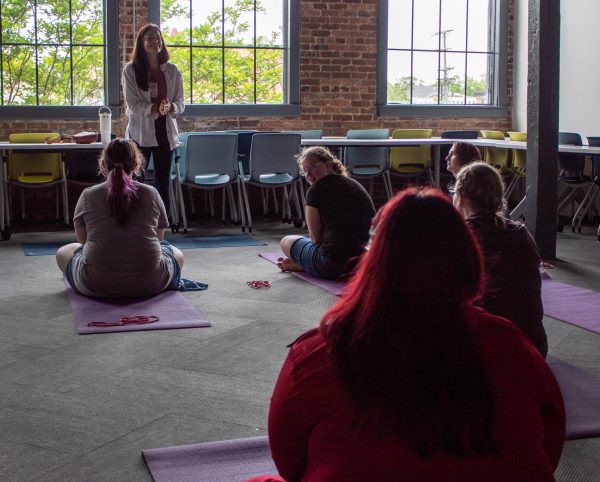UNA ranked top 10 in national online security survey
October 6, 2015
UNA ranked sixth out of 485 schools on a recent study on higher education security conducted by Security Scorecard.
The survey, conducted in August 2015, examined schools and graded them based on their security measures in place, according to the study results.
“We do our best to protect the university and the student’s information,” said Chief Information Officer Stephen Putman. “When it comes to security, there is not one thing. There are several puzzle pieces that contribute to it.”
The department of Information Technology Services made changes to their internet security measures by the addition of SafeConnect software last fall, Putman said. He said this software adds another layer to the level of online security at UNA.
SafeConnect requires all Internet devices to have anti-virus software installed, running and up-to-date, he said.
Putman said it is important for users to keep anti-virus software updated to ensure the program protects against the newest viruses and malware.
“You go to the doctor and get a shot to protect you from something,” Putman said. “Over the years you have to go back and get a booster. If you don’t have the latest virus definitions, it’s not worth a lot.”
For Microsoft Windows devices, SafeConnect ensures windows updates are on and set to automatic before allowing the device access to Wi-Fi, he said.
“The thinking behind that is, hopefully if you’ve got a running antivirus with the up to date definitions and you’re keeping the latest security updates on your operating system, then your system is fairly secure,” he said.
SafeConnect also ensures all devices are free of peer-to-peer sharing software before allowing access to Wi-Fi.
“Those applications are the quickest way in the world to get infected,” Putman said. “There’s no telling how many machines I’ve cleaned up over the years that got a virus from (peer to peer software).”
Another product the university recently uses to enhance online security by deflecting harmful websites is Open DNS, Putman said.
Open DNS is an Internet software that acts as a phone book by “looking up” site addresses and deflecting sites that contain harmful malware, he said.
The university does not decide which sites are blocked; Open DNS does, he said.
“It’s one of the things that’s helped us more than anything,” Putman said. “It’s cut down the number of viruses and spyware on campus.”
Some students believe they don’t need antivirus software if they use a Macintosh computer.
Putman said the reason Mac’s are infected less is because they are targeted less.
“Some students got upset because we required even Mac users to have antivirus installed, running and updated,” he said. “Ultimately, you’re not connecting to the Wi-Fi unless you have anti-virus. We’re not budging on that.”
Junior Zebulun Worlund said he used to believe this popular myth.
“Every computer needs some sort of anti-virus software,” Worlund said. “This is a necessary requirement that really isn’t that much of an inconvenience because anti-virus software also benefits you.”
Junior Katy Billings said she stopped using her computer on campus because of the anti-virus requirement.
“It was really inconvenient,” she said. “I installed it initially, but now I have to update it. So, now I just use my iPad while on campus.”
Links to download free anti-virus software can be found at una.edu/its. The site also contains more information about SafeConnect and Open DNS.










